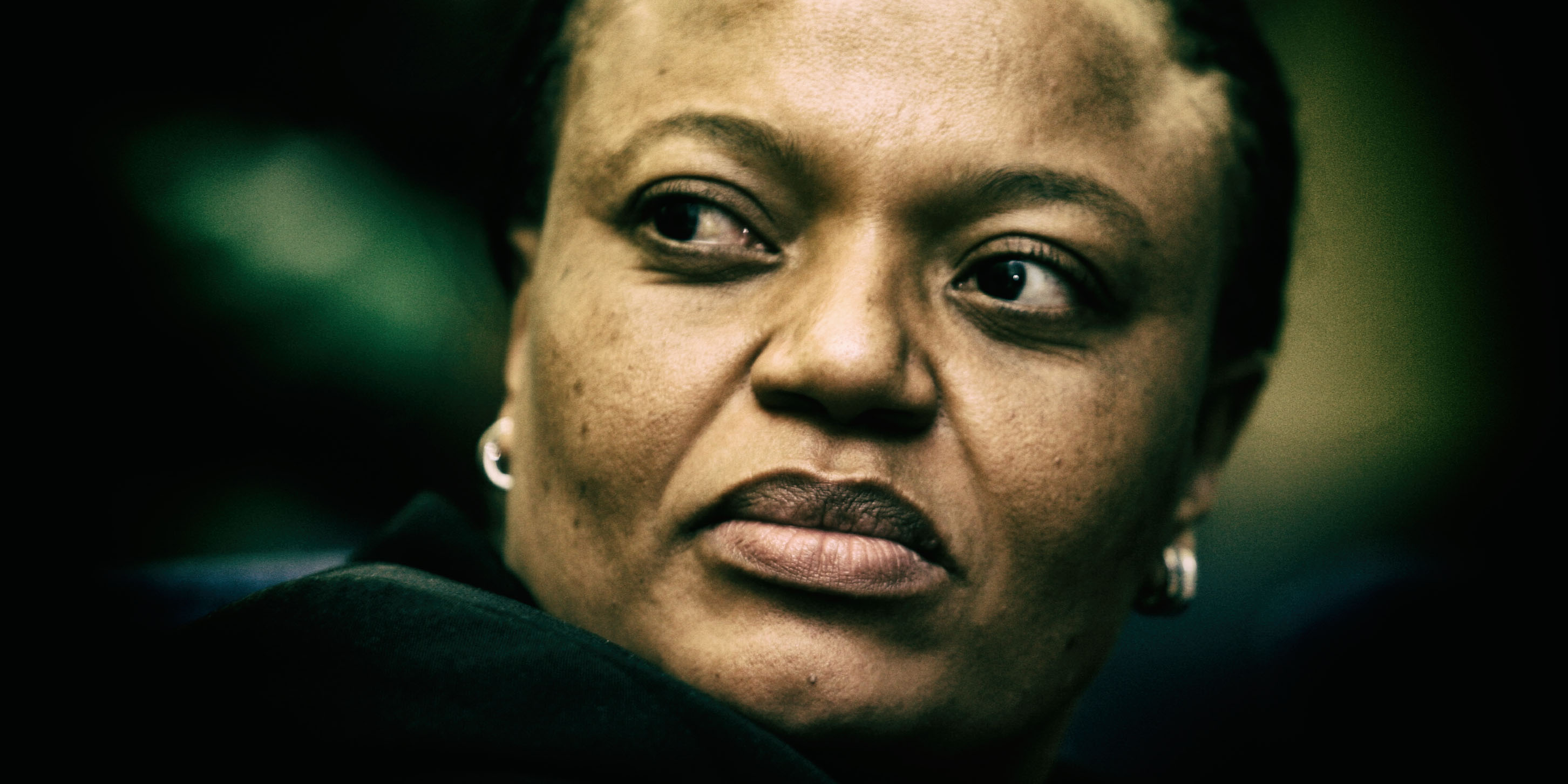The CEO of Transnet’s freight rail division, Siza Mzimela, has resigned, joining a top leadership exodus at the troubled state-owned transport group.
Mzimela sent a letter to staff on Thursday 5 October, informing them of her resignation and plan to stay on at Transnet until the end of the month. She joins CEO Portia Derby and CFO Nonkululeko Dlamini who have also left the company.
Read more in Daily Maverick: Transnet left rudderless as both CEO Portia Derby and CFO Nonkululeko Dlamini resign
In a statement released on Thursday afternoon, Transnet confirmed Mzimela’s resignation, adding that a recruitment process to find her successor is underway.
Russell Baatjies has been appointed as the acting CEO of Transnet’s freight rail division. Baatjies was recently the managing executive of Transnet’s Cape Corridor, the main line for manganese exports and agricultural commodities.
In Mzimela’s letter, seen by Daily Maverick and widely circulated on social media, Mzimela, who led Transnet Freight Rail (TFR) over the past three years, thanked the division’s 26,000 staff and urged them to reform the state-owned entity’s floundering rail network.
Transnet heavy industries failings
Mzimela has been facing enormous pressure to resign because under her watch, Transnet’s rail network, which she manages, has become inefficient and unreliable for big industry. The mining industry, mainly coal exporters who rely on Transnet, has been lobbying for the removal of Mzimela and Derby from the SOE.
The release of Mzimela’s letter, confirming her departure, came hours before she was scheduled to address the mining sector at the Joburg Indaba about the SOE’s plans to reform its Transnet’s rail network, which has caused the economy and public finances to lose billions of rands. Mzimela’s keynote address, which was scheduled for noon, has been highly anticipated by the mining community following the leadership exodus at Transnet.
During the address, Mzimela spent most of her time talking about challenges that TFR faces, including underinvestment and lack of maintenance in the rail network due to Transnet’s dire financial situation.
Underscoring the dire financial situation is that on 1 September, Transnet unveiled its disastrous results in which it recorded a financial loss of R5.7-billion. It has a smothering debt problem of R130.1-billion, with the SOE now paying R1-billion in interest every month on this debt.
The lack of upgrades and maintenance to the rail system, Mzimela said, resulted in increased incidents of damage to Transnet’s rail infrastructure, making it unreliable.
“Systemic underinvestment has resulted in increased maintenance backlog due to limited funds. Incidents cost Transnet R1-billion in 2022/23. Increasing climate-related incidents [such as severe flooding] diverts funding to emergency unforeseen maintenance,” she said.
Mzimela urged the mining sector and other big industries to partner with Transnet and pour capital into upgrading its rail infrastructure. However, the private sector is often viewed Derby, along with other Transnet executives, mainly Mzimela, as being militant and often refused help offered by private sector players.
‘Disaster’ for mining
Mzimela’s reign at TFR, which is the largest division at Transnet, has been described as “disastrous” by the mining sector. Over the past three years, rail volumes have been languishing below 200 million tons, and incidents of cable theft on the rail network have been pervasive.
The mining industry, which depends on Transnet trains to rail coal to markets, estimated that the SOE’s inability to move trains due to mismanagement, cable theft, and vandalism, cost the industry R50-billion in lost opportunities in 2022 alone.
Mzimela was not seen as the right fit for running Transnet trains because she was the CEO of state airlines SAA and SA Express, which were both in business rescue, but the latter is now defunct. She also had no rail experience.
Defenders of Derby and Mzimela have argued that expectations for them to turn around Transnet were lofty, considering the SOE was a key site of State Capture for many years. In her letter to staff, Mzimela referenced the challenges that she and the TFR staff faced. She wrote: “Despite the seemingly endless litany of legacy challenges, which include lack of tools for peak performance, lack of locomotives, crippling theft, and vandalism, as well as the ‘potholes’ in the infrastructure system that force slower movement of trains due to our company's safety-first ethos, you, the people of TFR continued to push forward”.
Among the achievements during the three years that she led TFR, Mzimela highlighted the introduction of borderless trains with Mozambique, the repair of the container corridor after it was damaged by floods, the introduction of additional junior miners into the manganese sector and a new manganese export line to East London. DM





